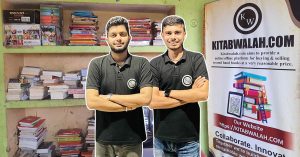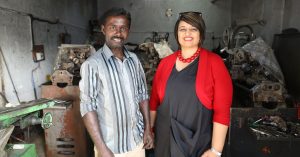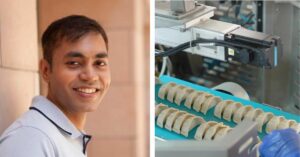College Friends Quit Jobs to Turn Orange Peels, Coconut, Cactus into Leather Alternatives
Gurugram duo Alok and Isha quit their careers to launch Waraq, a sustainable venture that offers alternatives to leather and makes bags and accessories from coconuts, orange peels, and more.
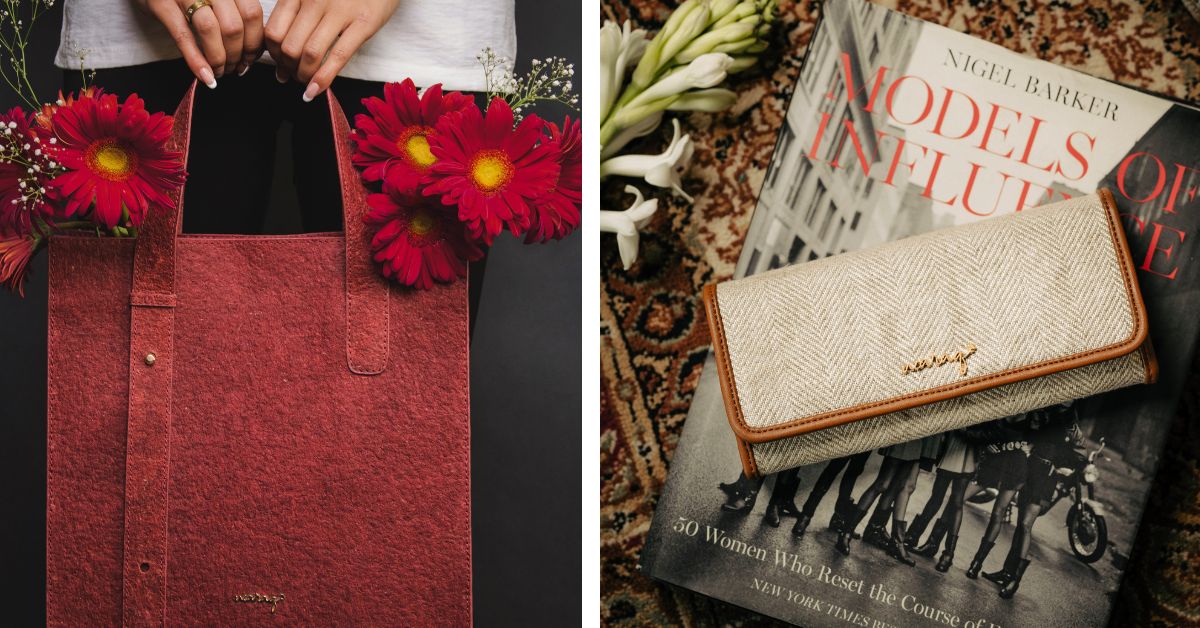
It was in 2020, when the whole world was confined within their houses due to the pandemic, that Alok Dhodapkar and Isha C conceptualised an idea that today is a sustainable luxury brand.
The duo, who have been friends since college, were always keen on starting a venture of their own. For years, however, their careers moved in a different direction — they both worked as brand managers for over a decade.
But in July this year, after brainstorming different ideas and looking into different eco-friendly materials, the duo decided to quit their flourishing careers to launch Waraq, a Gurugram-based sustainable brand that makes bags, keychains, slings and purses from sustainable, vegan and biodegradable materials.
“At the time, there was a lot of conversation around going vegan and a rising trend of cruelty-free goods. But after research, I realised that most products were made using rexine or faux leather, which is not sustainable at all,” Isha recalls.
“When we started throwing around ideas, one thing we were sure about was that we wanted to make products that are 100 per cent sustainable and organic,” she tells The Better India.
At the same time, they also made sure that the products would be creative and eye-catching.
“Besides work, we wanted to have fun. We wanted to create something of our own and find different alternatives which are more sustainable,” adds Alok, co-founder, Waraq.
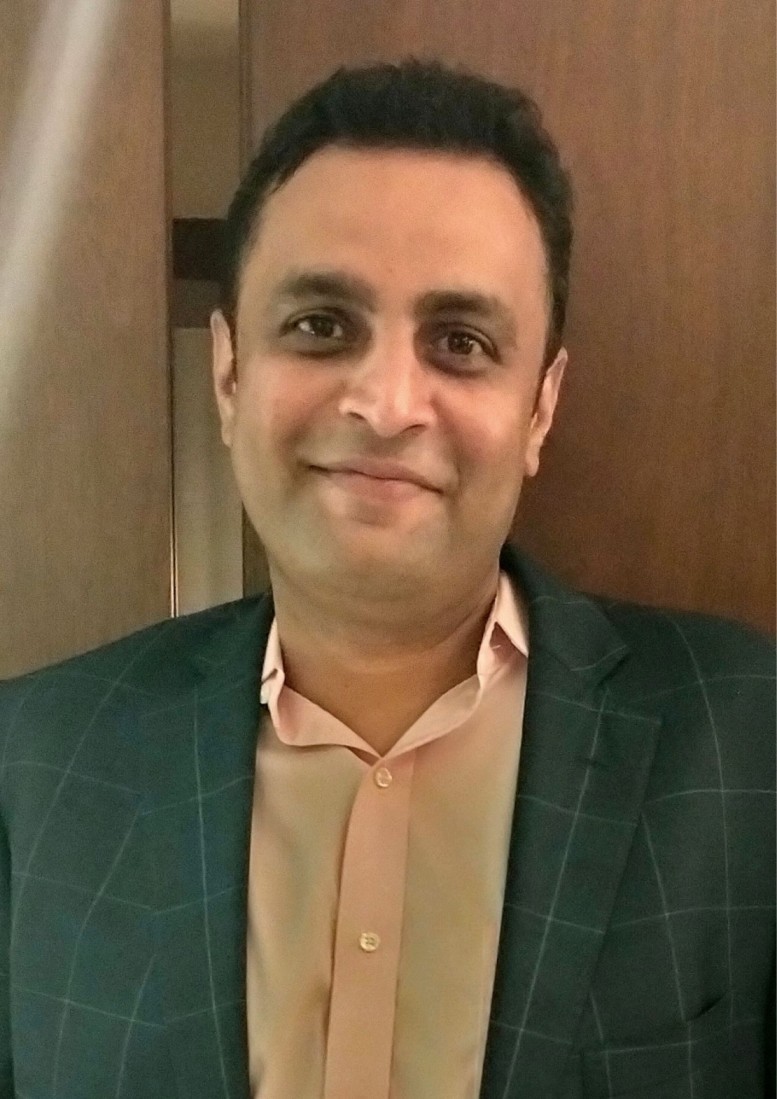
‘Aim is to ensure zero harm to environment’
Waraq makes several lines of products made out of sustainable materials like coconut leather, cactus leather, orange peels, bemberg satin, and organic dyes.
“Our first collection was made with coconut leather. We collaborated with Malai, a Kerala-based producer of coconut leather. Then we worked with cactus leather sourced from Mexico. We made handbags and slings out of it. It is called Gul and it has incorporated an ancient art form called Rogan Art. Another collection that we have is a scarf collection. These are made out of bemberg stain, which is a fabric obtained from cotton seeds and is completely biodegradable,” Isha explains.
“We have always loved looking into and experimenting with different types of alternative fabrics and materials. Another scarf collection that we came out with used fabric made out of the orange peel. It is sourced from Myanmar. It is a biodegradable alternative and cruelty-free version of silk,’’ she adds.
Meanwhile, Alok says, “Whenever we looked into a material, we wanted to make sure that it comes out looking nice as an accessory, and does not harm the environment,” Alok adds.
The dyes used to colour the products are also plant-based and organic. “The honeydew colour on our sling bags, for example, comes from Catechu, an extract of Acacia trees,” Isha says.
‘Still haven’t cracked the code’
While there are a lot of alternative green options available from across the world to use, the co-founders say using them was not always a smooth process.
“It was very difficult to bring karigars (artisans) to use these materials. They have been working with traditional animal skin leather for years and many are unwilling to change. It was quite a back-and-forth to figure out how to fit our materials into their machines. Like with coconut leather, we found out that it was a lot thicker than animal leather and had to be reduced to fit in the machines,” Alok explains.
“With every material that we have used in our collection, it has been quite a journey — from procuring to understanding what product would be best made from it,” he adds.
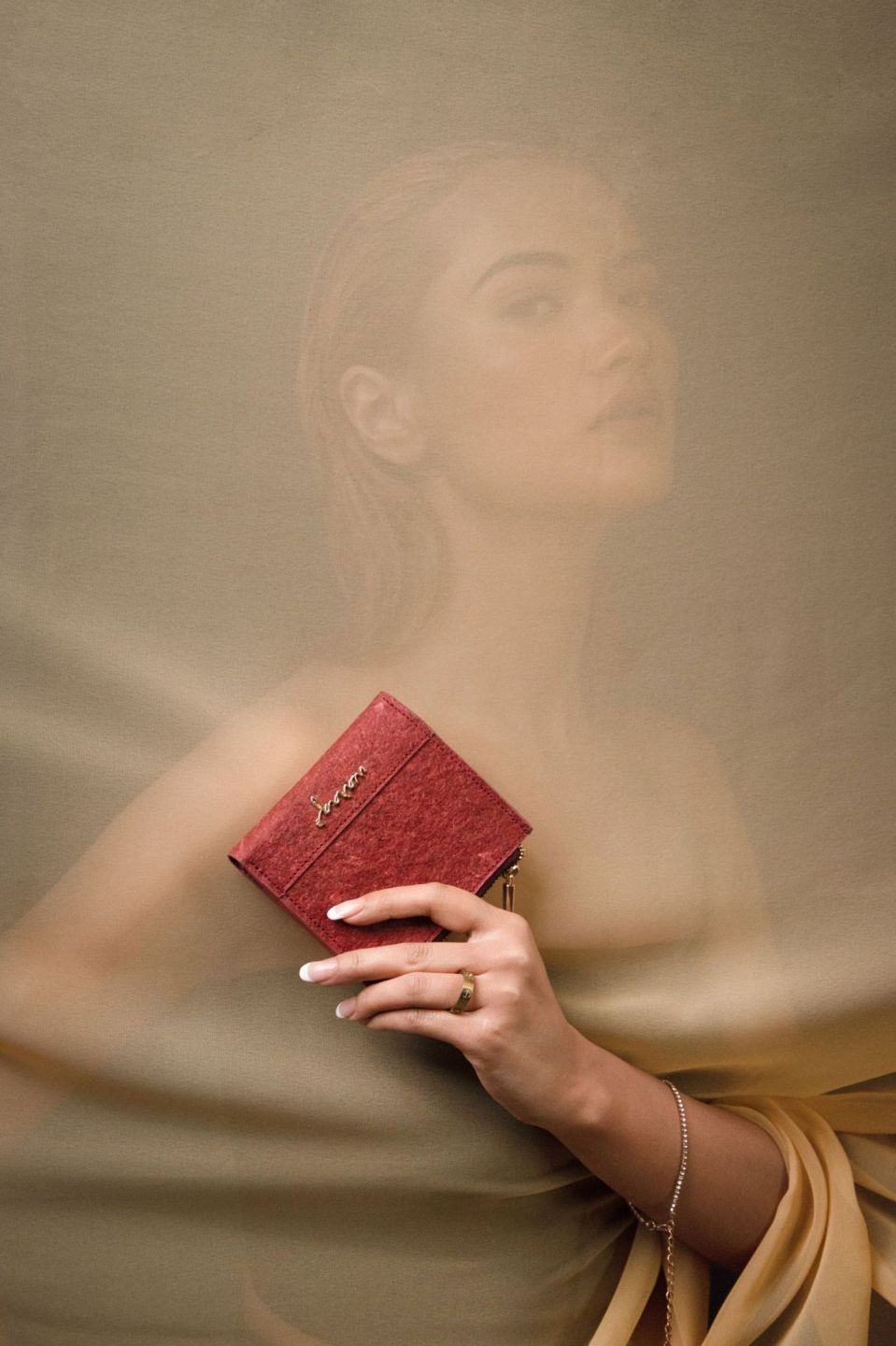
“For instance, wallets made from coconut leather would be very hard and coarse to the hand, so we had to grate them down. All of these different materials have been like a canvas for a new painting. We still say we are in the learning process,” he adds.
While the conversation about sustainable living is the talk of the town, manufacturers in India are still not equipped with using alternative materials, opine the co-founders.
“Kanpur is one of the largest leather goods manufacturers in the country, but we realised that manufacturers here are not at all aware of these alternatives. We had difficulty finding people who have the bandwidth to change their way of working and make us these products,” Isha adds.
Aims for zero waste and affordability
The brand has its goals set right away — no waste and no mass production.
“Every new material that we use is a learning arch for us and the manufacturers. We are a small unit but we also want to ensure zero waste. We come out with small collections, collect feedback and then produce more of it. All good work will be a total waste if we mass produce and they do not sell,” Alok says.
“Indian customers are often still attracted to our products because they are pleasing to the eyes and sustainability is an afterthought, which is the reason for the high costs of the products,” says Isha.
“Many of these base materials like coconut leather or cactus leather have to be imported. They are quite expensive and it pushes the cost. But we want to make our products as affordable and durable as possible. In the future, when there is a bigger market for these products, the cost is bound to go down,” Alok says, adding that they hope to make their products affordable for everyone.
Only a six-month-old player in the business, the brand has acquired a loyal base of customers and is earning in a comfortable position. Their products are available online on their website and in two stores in Hyderabad and Kolkata.
“It is really heartening when people touch our products and say ‘Oh this is made from coconut’ — it gives us a confidence boost. They are so pleasantly surprised and that is very motivating even if the profits are bleak,” says Alok.
Edited by Divya Sethu
This story made me
- 97
- 121
- 89
- 167
Tell Us More
We bring stories straight from the heart of India, to inspire millions and create a wave of impact. Our positive movement is growing bigger everyday, and we would love for you to join it.
Please contribute whatever you can, every little penny helps our team in bringing you more stories that support dreams and spread hope.






